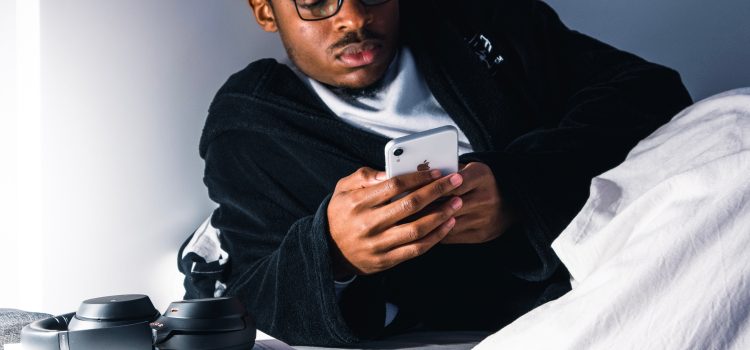
Are you one of those people who just can’t resist scrolling through social media, watching videos, or playing games on your phone before hitting the sack? You’re not alone. However, did you know that using your phone before bed is doing more than just exposing you to blue light? It’s actually ruining the quality of your sleep and affecting your overall health. In this blog post, we’ll uncover why using your phone at bedtime is a bad idea and explore some simple solutions to help break this habit for good. So put down that device and read on!
What is blue light and how does it affect the body?
Light emitted from electronic screens and other devices at night before bed can disrupt the body’s natural sleep rhythms and induce fatigue the next day. This is because blue light has a short wavelength that stimulates the brain to produce cortisol, which is a stress hormone. Excessive cortisol release can lead to disrupted sleep, increased anxiety levels, difficulty concentrating, and weight gain.
To combat these negative effects, avoid using electronics before bedtime by turning off all screens at least an hour before bedtime. If you must use a screen device, try to limit your exposure to blue light by using a red or yellow light filter or using an app that blocks blue light hours before bedtime.
The Effects of Blue Light on the Body
The short answer to this question is that blue light from screens can mess with your circadian rhythm, which can lead to disrupted sleep. In fact, research has shown that using electronic devices before bedtime negatively affects your sleep quality and quantity.
Experts say that because blue light is especially damaging to the human eye, it’s important to avoid using screens in dark environments before bedtime. Instead, try reading a book or using an app that doesn’t emit blue light. Additionally, make sure you’re using your phone in moderation and only for necessary tasks.
How to Reduce Exposure to Blue Light at Night
The blue light emitted from electronic devices is known to disrupt sleep, according to a new study. Researchers at the University of Missouri found that people who use personal electronics before bed are more likely to have disrupted sleep. The study found that when people use screens before bed, their levels of melatonin, a hormone that helps regulate circadian rhythm and sleeping patterns, were significantly reduced. Melatonin is produced in the dark and regulated by sunlight exposure. When people use screens late at night or in the early morning hours, their levels of melatonin are significantly lowered because they’re not getting enough exposure to sunlight. In addition to disrupting sleep, using personal electronics before bed also increases the risk for developing chronic diseases such as obesity and Type 2 diabetes.
If you find yourself struggling to get quality sleep due to your addiction to your phone, there are several things you can do in order to reduce your exposure to blue light:
1) Use an alarm clock with a timer instead of an automatic setting. This way you can set a time limit for screen time and stick to it no matter what.
2) Set your device’s brightness level lower during evening hours. This will help reduce the amount of blue light entering your eyes.
3) Stick to using devices exclusively for entertainment purposes in designated areas of your home such as your living room or bedroom only . Do not put them in other areas where they may be used for work or checking emails. Doing so will help reduce distractions from other
Conclusion
We all know that using our phones before bed is bad for our sleep, but why? According to recent studies, exposure to blue light before bed is one of the major factors behind why we are getting less rest. Blue light has been shown to suppress Melatonin production, which can lead to decreased energy levels and disrupted sleep patterns. If you’re struggling with poor sleep due to your phone use, there are a few simple tweaks you can make in order to improve your slumbering habits.










